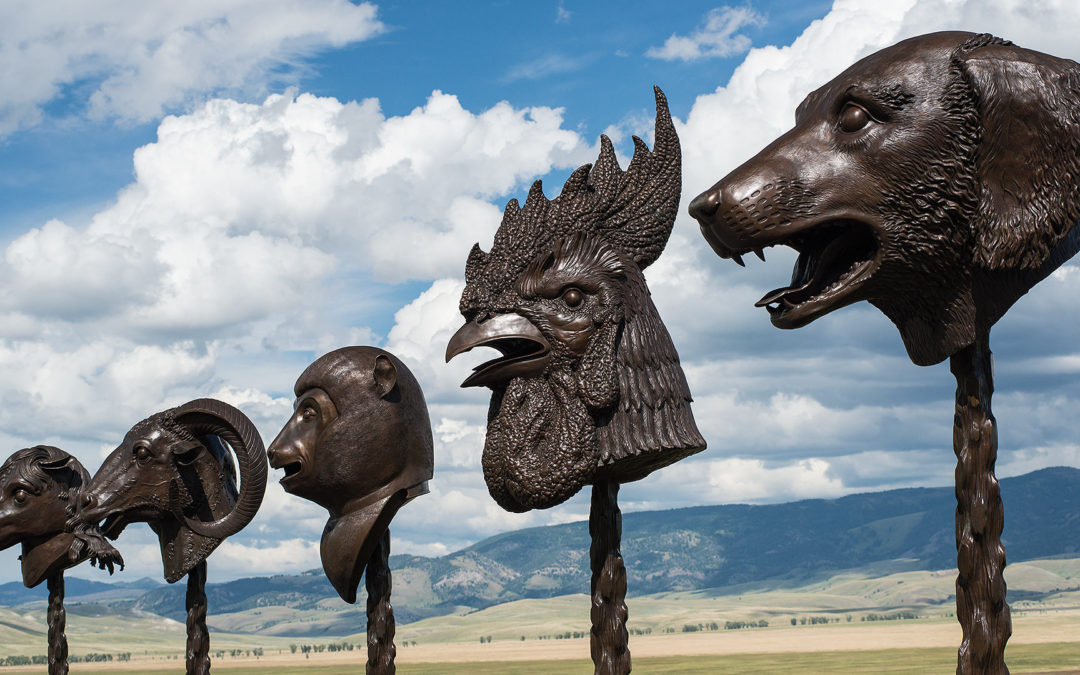This display, above, was my first introduction to the art of Ai Wei Wei. These Zodiac heads were shown at the National Museum of Wildlife Art in Jackson Hole, Wyoming. In the bookstore of the museum, I found a little book of Weiwei-isms. I was immediately taken with the perspective of this Chinese artist and dissident. Two of Ai Wei Wei’s sayings I treasure because they so resonate deeply with my beliefs about leadership.
“Your own acts tell the world who you are and what kind of society you think it should be.”
“I call on people to be ‘obsessed citizens,’ forever questioning and asking for accountability. That’s the only chance we have today of a healthy and happy life.”
This is the spirit of personal responsibility that points to my conviction that “all leadership begins with personal initiative to create impact that makes a difference that matters.” This responsibility is not something imposed upon us. It is not an obligation or a requirement. Rather, it is the expression of our individual humanity.
Ai Wei Wei suggests that there is a transition in our understanding of leadership taking place. It is from a person being in authority to an expression of our individual humanity. This is why accountability is so essential to a healthy life for a society.
“I see myself not as a leader but as somebody who initiates things or finds the problem or provokes a discussion. You have to be always ready to engage, willing to participate. When events or history happen, you just have to be aware and respond.”
I share these thoughts as Ai Wei Wei’s memoir 1000 Years of Joys and Sorrows has just been published. I look forward to reading it because I see him as a man who not only stood for the principle of his own dignity as an artist, but also for the dignity of all people. In 2018, he released a film and a book about the global migration crisis. Here’s the trailer for the book. You can view the film on Amazon Prime.
The film surprised me. I expected a lot of political commentary by Ai Wei Wei, as if the film is about him and his perspective. It wasn’t. There was an astonishing little commentary. The images speak for themselves. I left realizing that this crisis has been a convenient opportunity for Western governments to exploit people abandoned by their home countries, and then abandoned again once they crossed our borders.
I encourage you to become curious about this man, his life, and his art. Watch this video of Ai Wei Wei describing the creative process for his Tate Modern exhibition called Sunflower Seeds. See how his art is not his own, but a representation and collaboration with many people.
“I think right now is the moment. This is the beginning. We don’t know what is it the moment of, and maybe something much crazier will happen. But really, we see the sunshine coming in. It was clouded for maybe a hundred years. Our whole condition was very sad, but we still feel warmth, and the life in our bodies can still tell that there is excitement in there, even though death is waiting. We had better not enjoy the moment, but create the moment.”
While Ai Wei Wei was referring to a moment happening in China, this moment is ours as well. To be a person of impact is to take personal responsibility for all that our life touches. To deflect that responsibility to someone else or to some institution is not just to deny our responsibility, but our very humanity.
As Ai Wei Wei reminds us, “If you don’t act, the danger becomes stronger.”
Cover image: Live Water Jackson Hole


